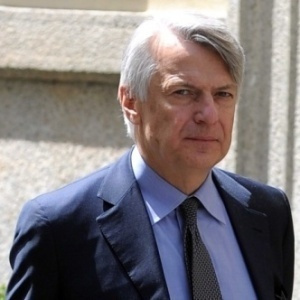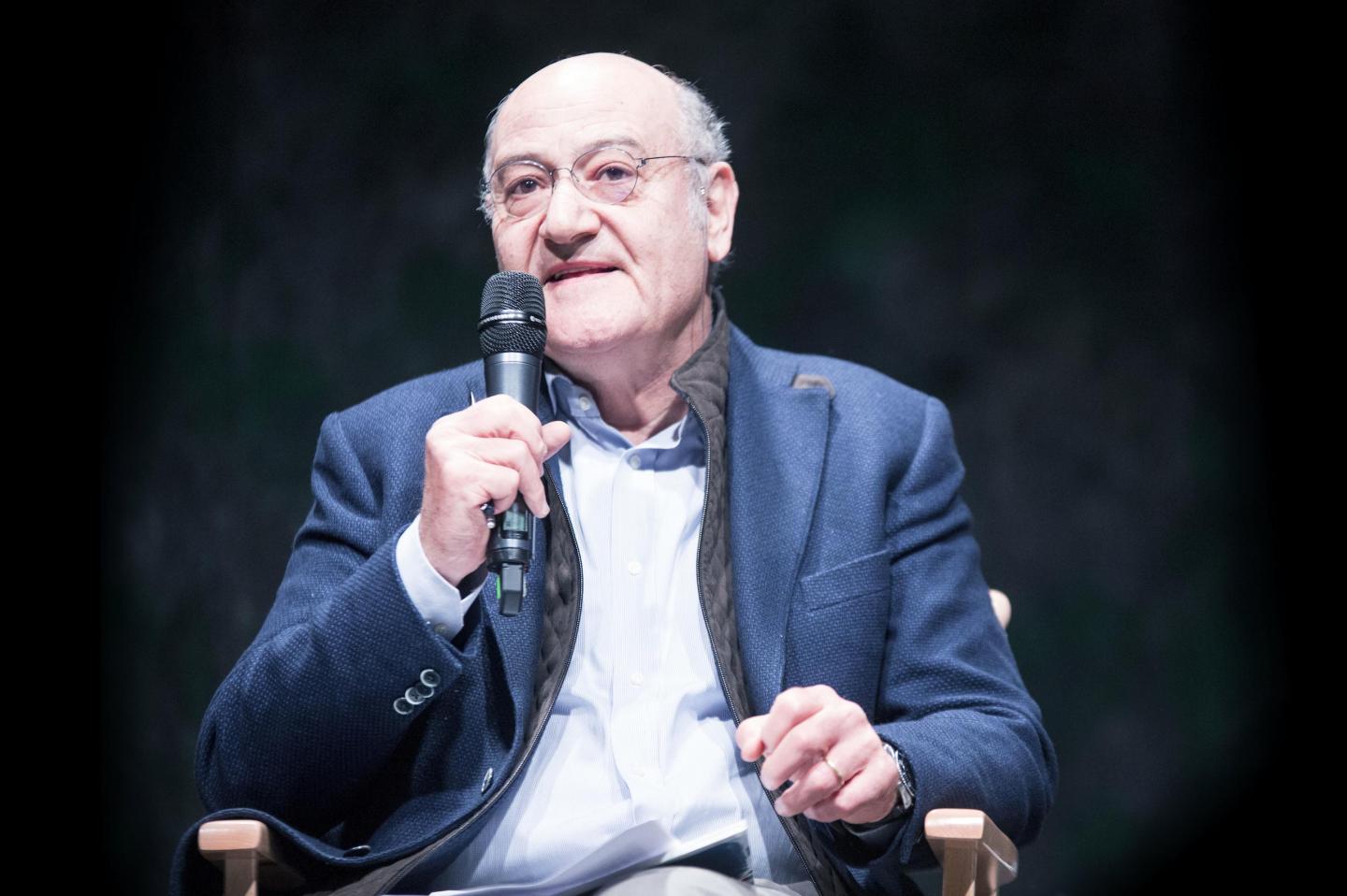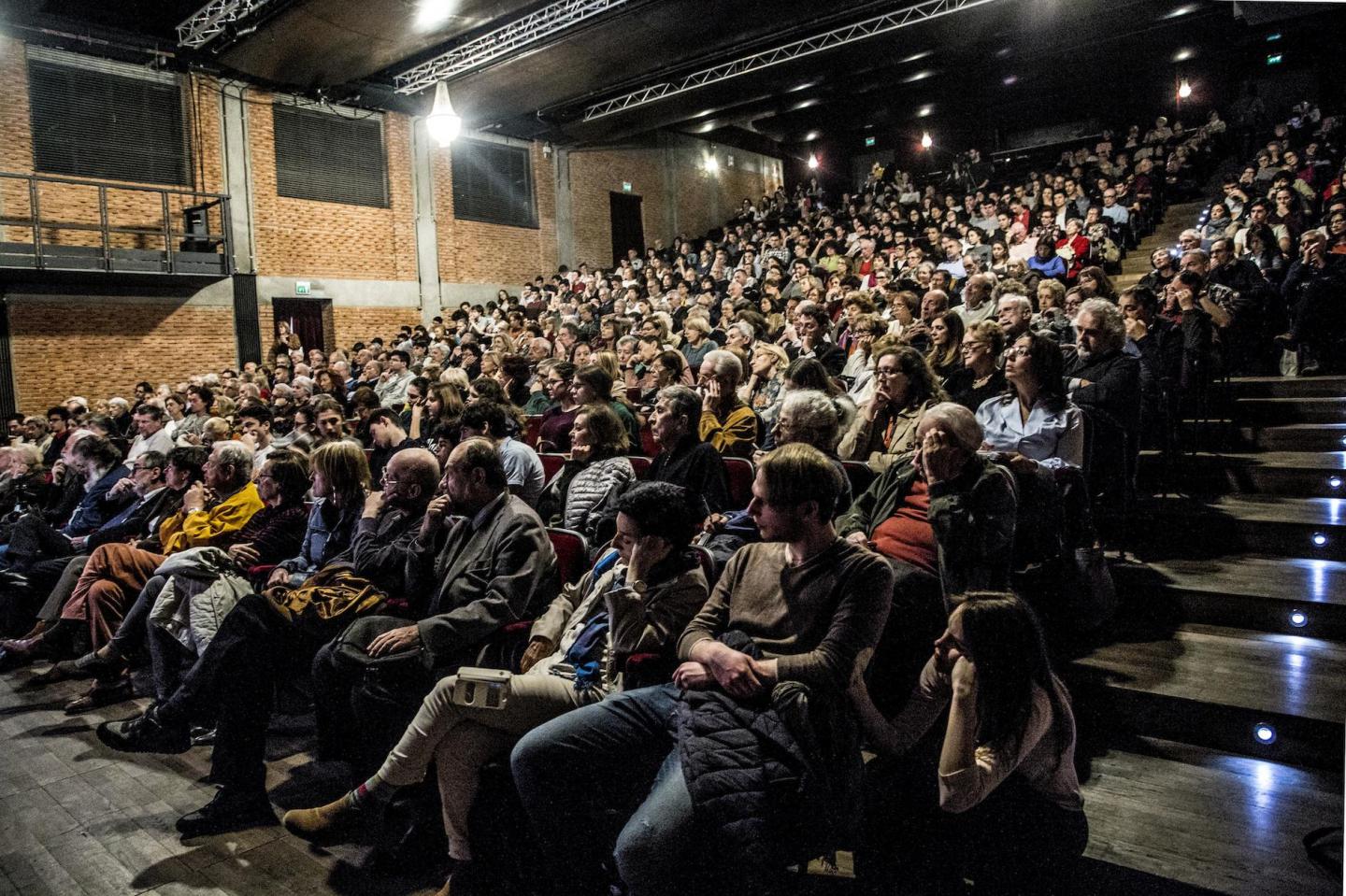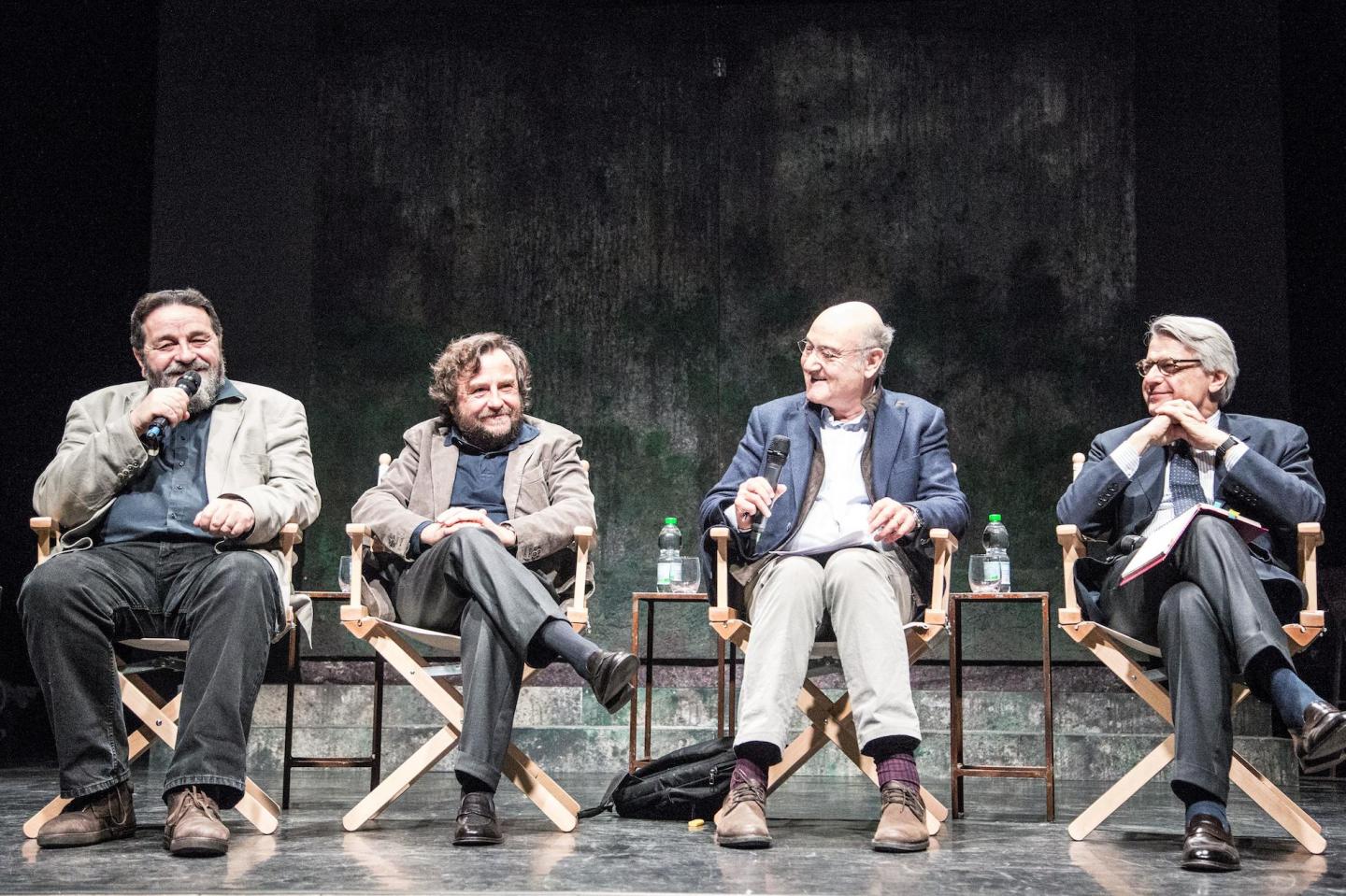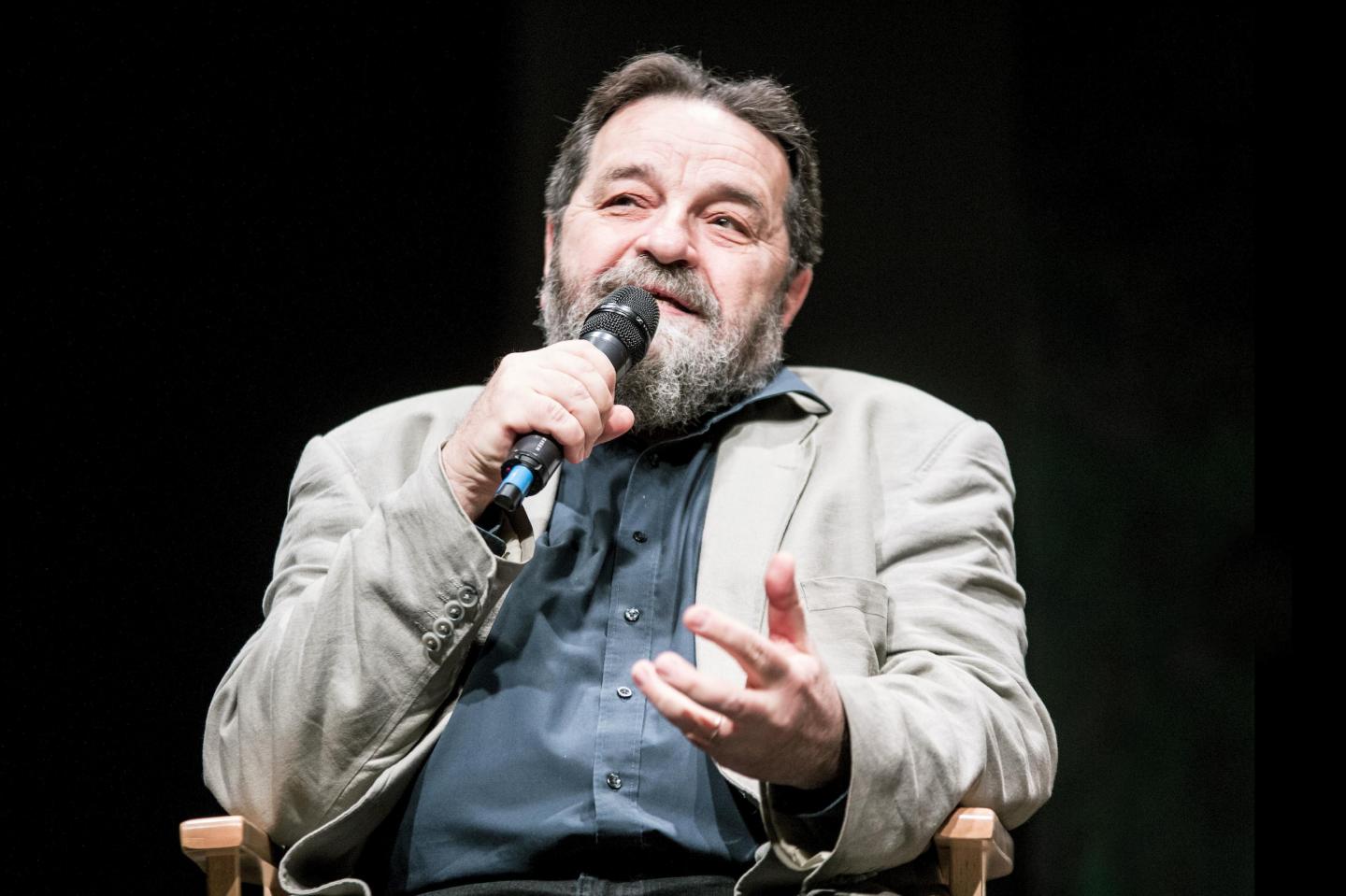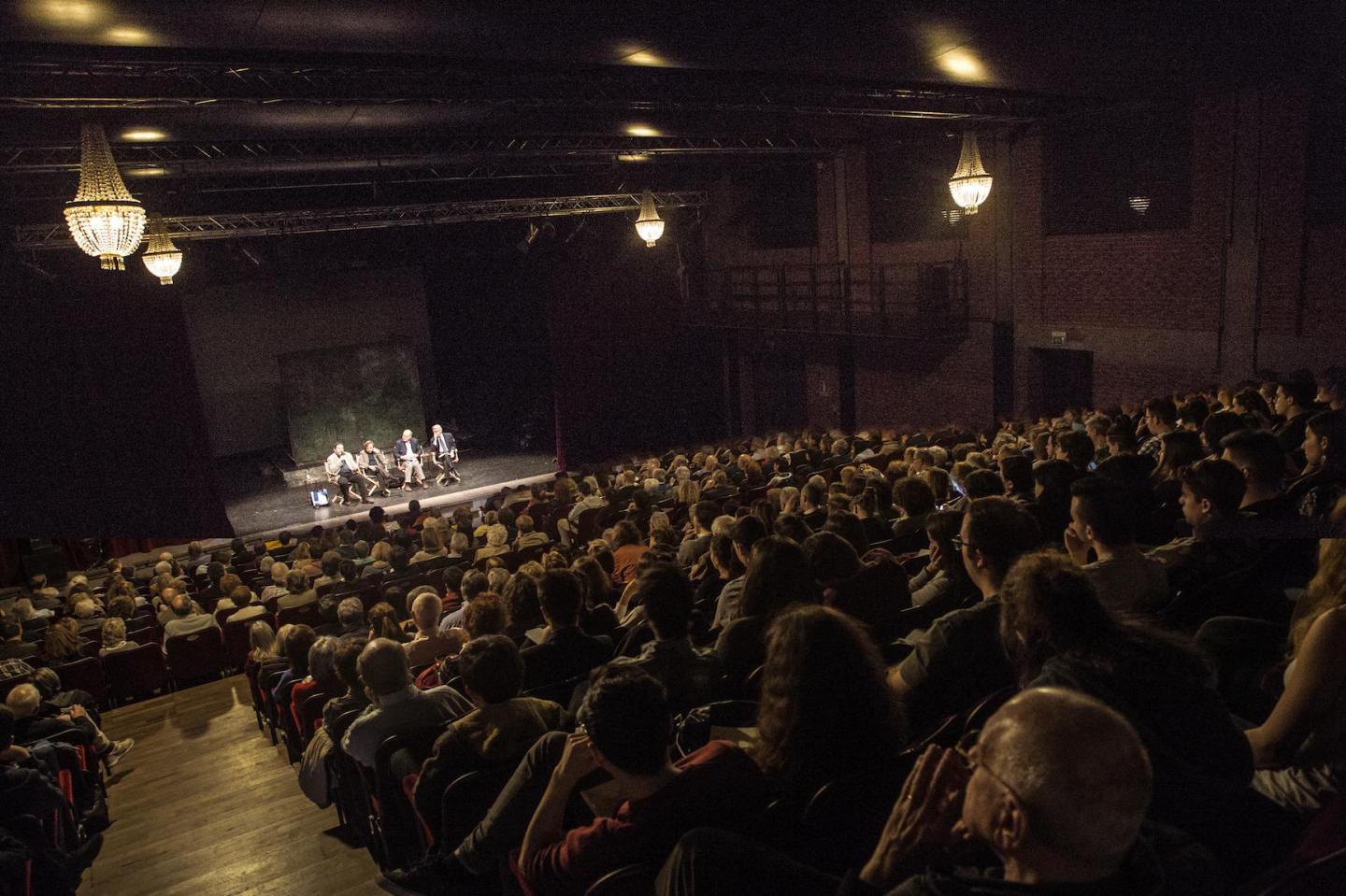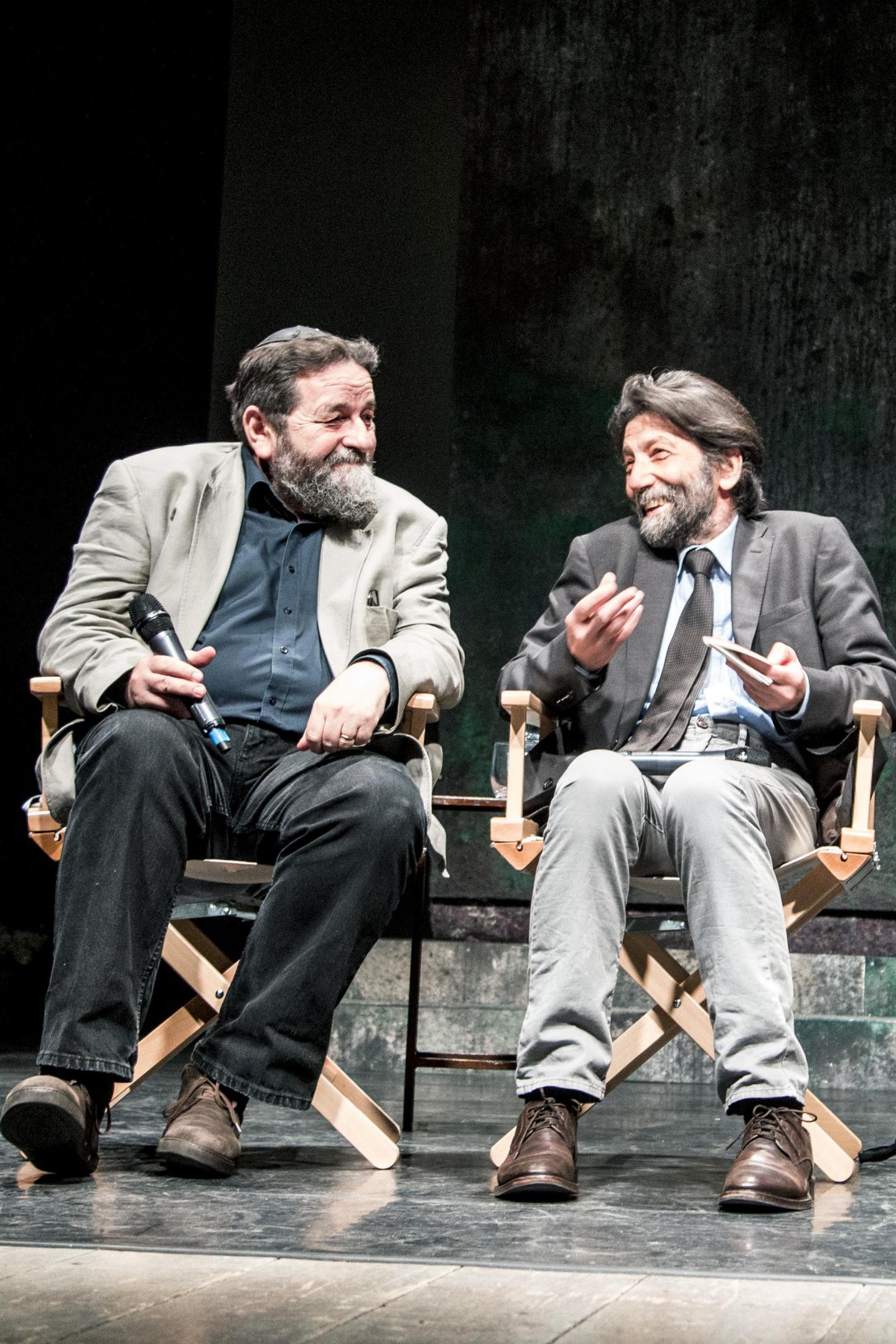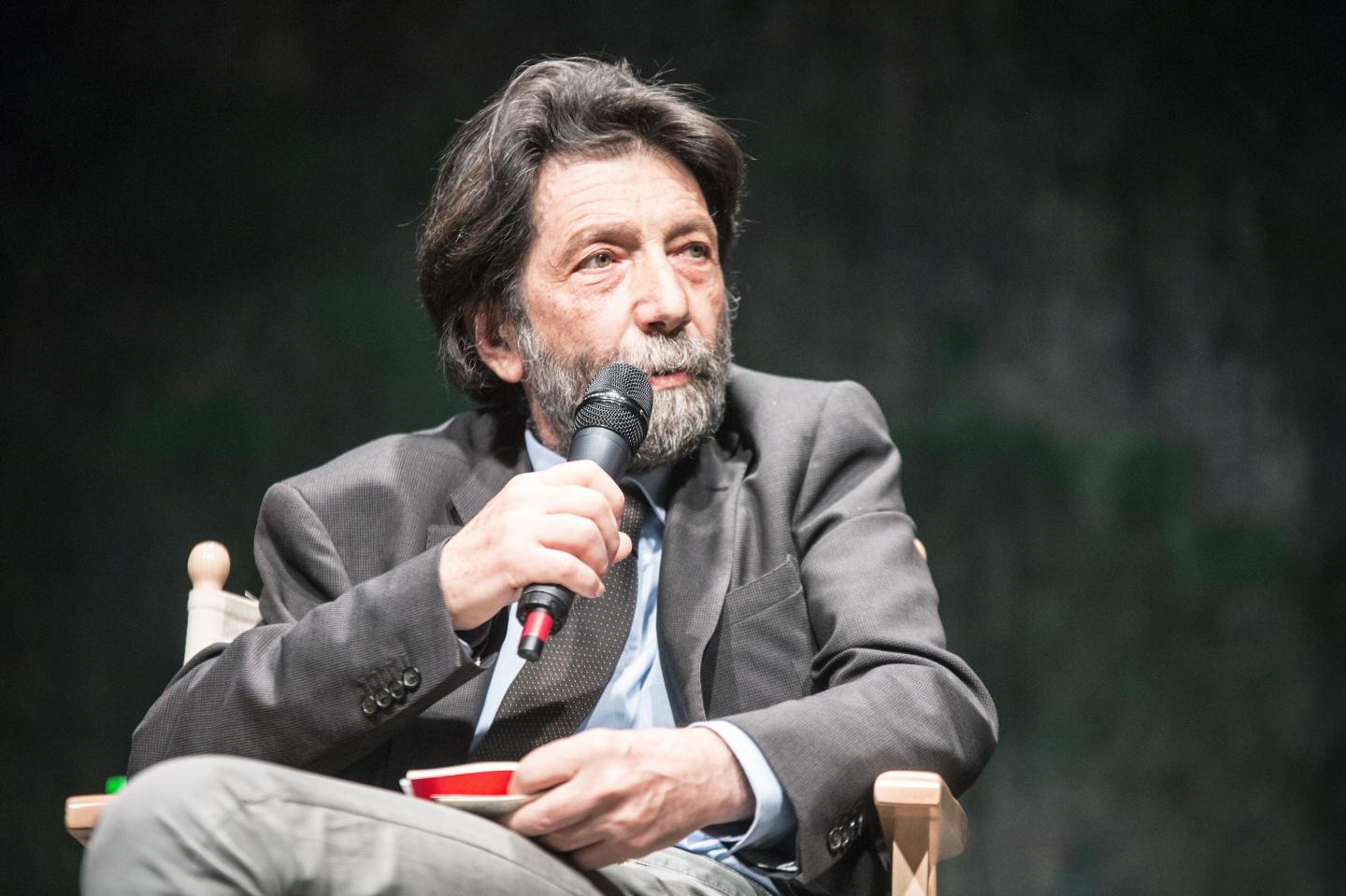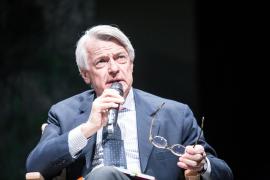
Ferruccio De Bortoli at Franco Parenti Theatre
Following we publish the remarks delivered by journalist Ferruccio de Bortoli at the third meeting of the series “The crisis of Europe and the Righteous of our time”, held by Gariwo in cooperation with Franco Parenti Theatre
When we talk about Europe we should be realistic and pragmatic: we should not forget about the reasons, which led to the birth of this political and economic project. In the recent days we witnessed to what seemed like a détente between the 27 European countries in Rome. Those were really beautiful pictures: smiles, friendly hugs, even the Polish President at the moment of the signature, who, with a gesture of her hands, seemed to say: “You have convinced me, I will sign it as well” - or at least that is what we read into it.
Only a few days have gone by and we have soon witnessed to the attitude of the Hungary run by Orban, who still opposes an equal redistribution of migrants in Europe, albeit their numbers are small if compared to the ones that our country is confronted with. Of course, we should admit in 1957 the spirit was different. The six countries that were the protagonists in that historic year had recently fought against each other and they signed the treaty, which is a milestone in European history, as they were still surrounded by debris. The wounds of the recent war were visible even on the people's bodies. Fortunately, today those wounds are no more visible, but their memory is still a warning to us. It reminds us that peace is no natural state in history, and democracy is appreciated only when it is missing. Over these 60 years of relative peace, we have accepted as an indisputable truth that democracy exists and can always be enjoyed. History, though, can always repeat itself. I think the action of these six countries has been a great gesture for the future, and I believe one of the pictures that best identify this Europe is the handshake between Mitterrand and Kohl in front of the monument to the fallen of Verdun. The past century was full of grief, massacres and continuous suffering, and it is our moral duty to tell about history and warn the new generations.
We must keep on asking ourselves why the ghosts of the past are resurfacing. Unfortunately, they are still in the air in Eastern Europe. To most of us it appears as a nonsense that it is really those countries, that owe so much to Europe in terms of welfare and economic openness, who are the protagonists of a nationalist and anti-European revival. The so called “enlargement to the East” was a policychosen by the European Union to avoid those countries to fall victims to fall back into the totalitarian nightmare – a nightmare that paradoxically someone today is reconsidering as a dream to make true. The enlargement to the East served the purpose to safeguard those national instances that today rebel against Europe. I would say the best definition of Europe is the one that identifies it as a “union of minorities”, in which every entity finds representation and acceptance. We have had uptil now the longest time of peace ever of peace in European history.
Now we found ourselves before a delicate passage. This is a years of elections, in France, Germany, which keep us worried about the uncertain and unpredictable results. This could alsi be year of European rebirth, thanks to a joint French-German leadership supported by a popular vote. Let me add that us convinced Europeists should avoid some typical mistakes. First of all, continuing to think of that “vintage” kind of Europe born by the historical mechanism and that would evolve over time into a broader and broader political and territorial union. That idea of Europe does not exist anymore unfortunately. We should look at reality and get back to dialogue with the European “demos”, the people at the core of democracy: we are in fact witnessing, day by day, to popular demonstrations that declare how unhappy people are about this Europe. Globalization has led to the exclusion of the middle class, which feels estranged from the main decision-making processes and votes for symbols – of which it probably it does not share the viewa – but which defend its conditions. It is for the first time in European history that fathers think that theis childrens will have a worse future than what they wished for them. All these prremises do not do anything but feed the ideological flow of those more populist or reactionary movements and parties.
It is wrong to admit that the pro-European find themselves on the right side of history, while the others are on the wrong side. In fact it has been another major mistake in the ideological construction of Europe, and it was committed by the very founding fathers, who believed in their oligarchic vision, that everything thus could spread top-down and the so much longed for political union would be born as a consequence. A big part of the European construction achieved so far was also accompliced by forcing democratic criteria, imposing a design, for how lofty, top-down, and by bypassing the process of democratic decision-making. The European élite has not been able to prove to the masses the goodness of the plan imposed in a top-down logics: the mistake was that to put at the edges of history those who had doubts, even in the construction of the single currency. We shall look at the issues and abandon the romantic vision of Europe, remembering that Europe has been born through strenghthened cooperations, i.e. from different speed rated and the total unanimity between 27 countries will be difficult to achieve.
Great Britain has decided to get out of this Union, although it was in there mostly in order to keep staying outside; as a spy that defended its own interests. This exit choice has to be read as an expression of clarity.
What is the alternative to this Union? Autarchy? Isolationism? Protectionism in the short run can be effective, Trump will prove it, but in the medium term everybody will lose. Is the solution the exit from the Union? Or the extravagant idea of double currency of tax currency?
If we want to build Europe staying on the side of the defence of its values, we cannot think of abandoning all efforts endured so far. I wish to say once again that we cannot afford anyloner a romantic vision of Europe, the one of the Manifesto of Ventotene, but Europe needs be rethought and rebuild, getting back to move the masses, speaking about values instead of interests.



